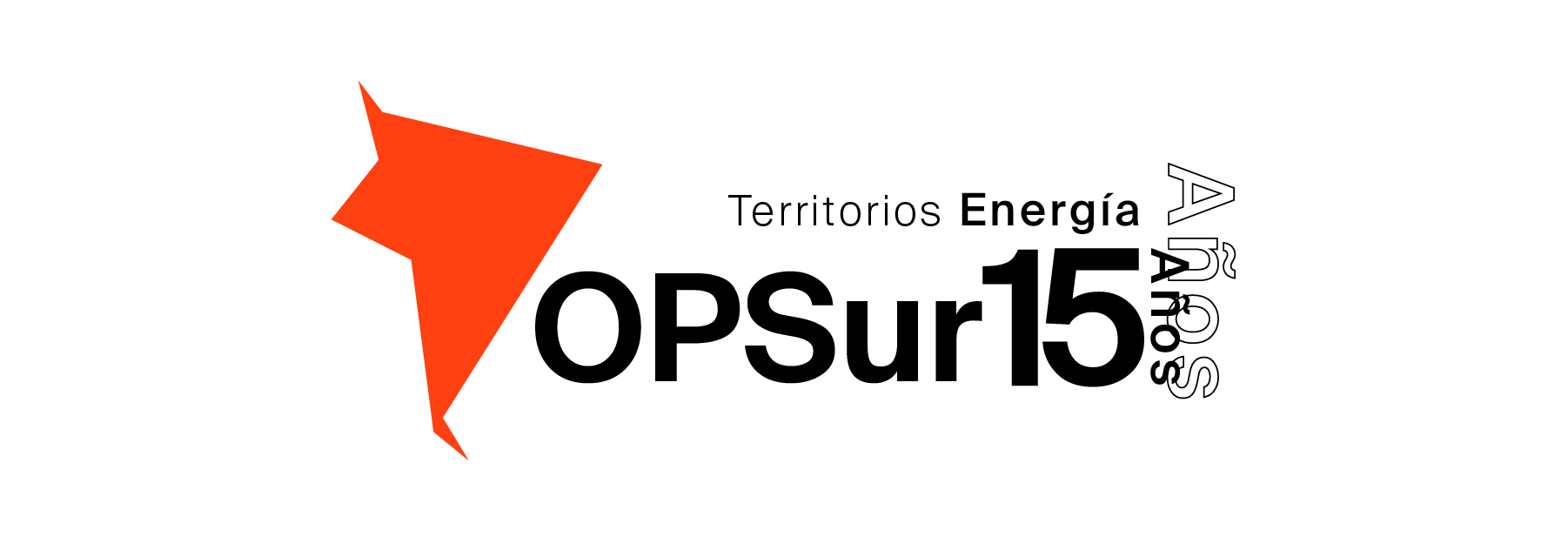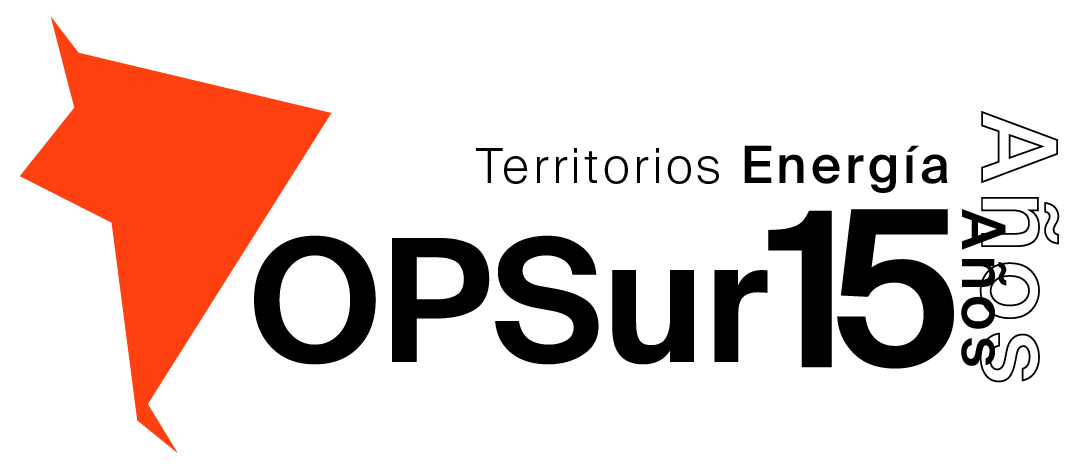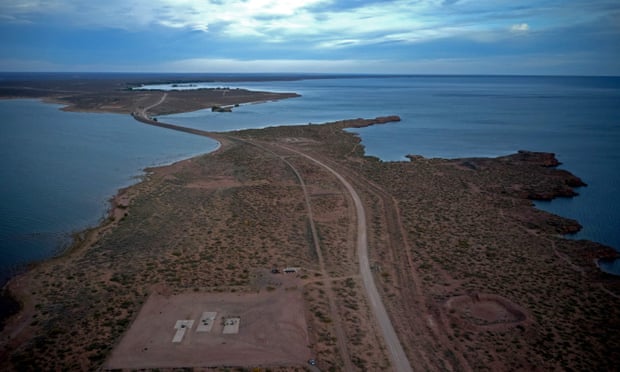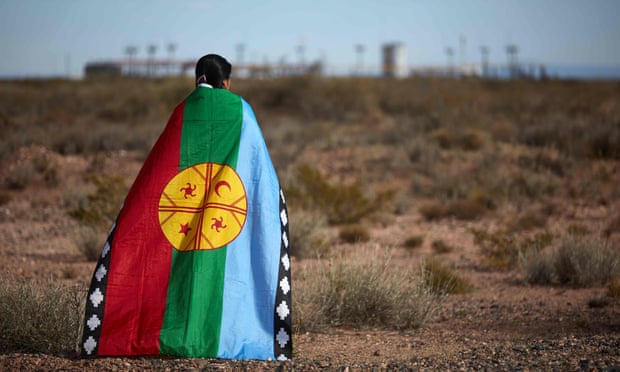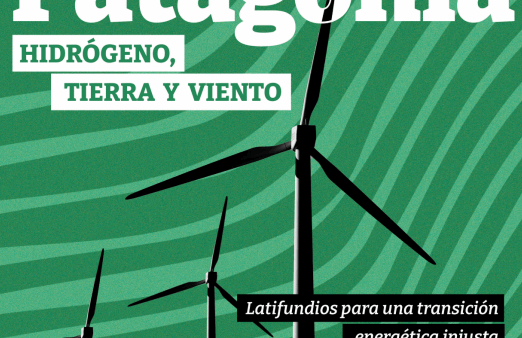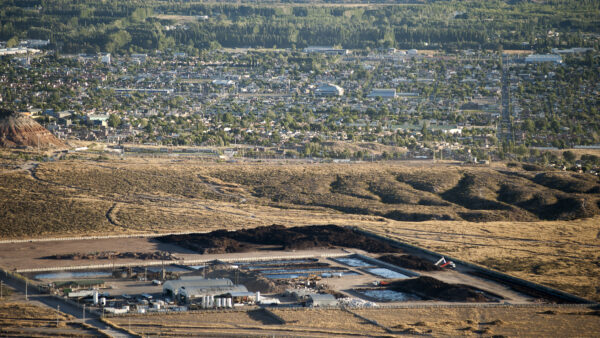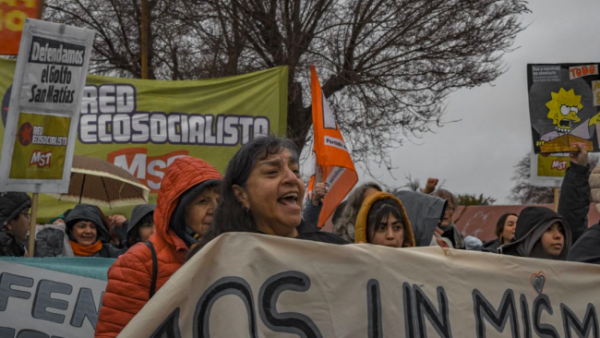Por Jonathan Watts / The Guardian – Lockdown and oil price slump leave future of vast Argentinian shale project hanging in balance.
A gas well at Loma de la Lata, in Argentina’s Neuquén province, part of the Vaca Muerta oil and gas fields in Patagonia. Photograph: Emiliano Lasalvia/AFP via Getty Images
Whether the post-pandemic world moves back to fossil fuels or forward to a clean economy will become clearer in the coming weeks as the International Monetary Fund and Argentina decide whether to continue support for the vast Vaca Muerta oil and gas fields in Patagonia.
The development aims to tap the second biggest shale deposits on the planet (after the Permian basin in Texas), but its future has been thrown in doubt by the coronavirus lockdown, which has induced the steepest fall of the oil price in 30 years.
Analysts say Vaca Muerta (which means Dead Cow in English) is now among the most economically vulnerable fossil fuel projects in the world. Climate campaigners believe it could be one of the first places where a decision is made to “keep it in the ground”.
The Argentinian government threw the project into limbo last week, when the minister of productive development, Matías Kulfas, called Vaca Muerta “an issue that will have to wait” until the crisis was over. Last month, the chairman of Argentina’s national oil company, YPF, said the oil price collapse “puts all Argentine oil production in doubt”.
As elsewhere in the world, key decisions have been put on hold. But more than any other country, the IMF will play an unusually crucial role in deciding the project’s fate – and this will send a strong signal about the stance of international institutions in shaping the post-pandemic world.
Two years ago, the IMF made its largest ever loan of $44bn (£35bn) to help Argentina through a debt crisis that continues today. A new restructuring is now being arranged by the fund, which also expects to conduct its annual “health check” on the country next month. That will include a review of Vaca Muerta.
Initially, the IMF promoted this project as a way for Argentina to earn foreign currency and become more energy independent. But – with growing pressure on international institutions to back away from fossil fuels – the fund insisted last year that Argentina cut subsidies for Vaca Muerta. This was potentially fatal even before the pandemic.
The Argentinian government has had to lure foreign oil companies including Chevron, Shell, ExxonMobil, ConocoPhillips and Pan American Energy (a British Petroleum subsidiary) with billions of dollars in subsidies. Without this financial crutch, projects could not stand up economically even at an oil price far higher than the current level of about $20 a barrel. The region was too remote, transport links too poor and local demand too weak. The project has also faced fierce opposition from the Mapuche indigenous community who say their territory has been stolen and contaminated for the benefit of foreigners. This made it one of the world’s most expensive and controversial fossil fuel projects.
Lorena Bravo, a spokesperson for members of the Mapuche indigenous community, who say their territory has been contaminated. Photograph: Emiliano Lasalvia/AFP via Getty Images
The lockdown is another blow. “The historical drop in oil prices is a new sign of the infeasibility of Vaca Muerta,” said Fernando Cabrera of the independent watchdog Observatorio Petrolero Sur in Neuquén. “We have long warned there was a lack of essential export infrastructure, weak global demand and over-dependence on subsidies which Argentina cannot afford due to its debt crisis. The pandemic deepens the problems.”
Veteran Argentinian oil executives – known inside the industry as viejos petroleros or old oil tankers – are pressing the government to go ahead with Vaca Muerta, to inflate the oil price inside the country, and to pass on the costs to drivers at the pumps. “In this industry you have to do what nobody does. Don’t go after the herd,” wrote José Luis Sureda, a former government secretary of hydrocarbon resources. But without funds, the government’s hands are tied.
“The demand and price crash is certainly disrupting the Argentinian government’s fossil fuel expansion plans in the short term,” said Lorne Stockman, a senior research analyst at Oil Change International. He said this was part of a global trend. Dozens of planned oil and gas projects are likely to be scrapped or indefinitely postponed, including three liquid natural gas plants in Brownsville, Texas, and many US offshore oil terminals. Canadian tar sands, Brazilian offshore oil wells, and Guyana drilling projects will also struggle to break even.
At a price of $35 per barrel, 4% of existing oil supply becomes uneconomical, according to a recent study by the energy industry analysts Wood Mackenzie. If values fall below $25 – as they have in the US – this loss-making share rises to 9% – equivalent to 10m barrels per day.
The situation is even tougher for new oil and gas projects. At $35 a barrel, 75% of new oil and gas projects fail to cover their financing costs.
Since the start of the pandemic, the world’s major oil companies have cut capital investment by almost $25bn. This will make it difficult for companies to reach their production forecasts. Last year, the Guardian revealed that the world’s 50 biggest oil companies planned to pump an additional 7m barrels per day by 2030. This is now far less likely.
“If prices don’t rebound, the taps will inevitably be turned off,” the study warned. “Given the difficulties and costs associated with restarting mature production, a proportion of this supply may never return.”
How much will largely depend on government leadership, said Valentina Kretzschmar, the vice-president of corporate research at Wood Mackenzie. “Ultimately it is about demand. If there is demand for oil, it will be produced. It won’t stay in the ground,” she said. “The question is what we learn from the Covid crisis. How will it change us? How will governments respond? It will really be the government response that will have a huge impact on what happens next.”
The IMF said last year it would incorporate climate risks into decision-making, which could would undermine the already-weak viability of Vaca Muerta. María Marta Di Paola, the director of research at the Environment and Natural Resources Foundation in Argentina, said the project was not aligned with the Paris climate agreement. “If the Vaca Muerta fracking expands as initially planned, its emissions will quadruple by 2050,” she wrote.
Stockman urged the IMF, Argentina and other governments to move away from fossil fuels in their economic stimulus packages. More subsidies, he said, would simply set up another boom and bust in the future. “Rather than bailing companies out so that executives and shareholders are protected, governments should be using the stimulus to support clean energy production and demand, and help workers transition. That is not happening.”
While a lot of projects look uneconomic in the current situation, few are being actively scrapped when the prospects of a price spike may be only a year or so away. Once again, the absence of policies to guide and manage a transition are failing us on climate, as well as on equity, justice and preventing the next disaster.
Since you’re here …
… we have a small favour to ask. More people, like you, are reading and supporting the Guardian’s independent, investigative journalism than ever before. And unlike many news organisations, we made the choice to keep our reporting open for all, regardless of where they live or what they can afford to pay.
The Guardian will engage with the most critical issues of our time – from the escalating climate catastrophe to widespread inequality to the influence of big tech on our lives. At a time when factual information is a necessity, we believe that each of us, around the world, deserves access to accurate reporting with integrity at its heart.
Our editorial independence means we set our own agenda and voice our own opinions. Guardian journalism is free from commercial and political bias and not influenced by billionaire owners or shareholders. This means we can give a voice to those less heard, explore where others turn away, and rigorously challenge those in power.
We hope you will consider supporting us today. We need your support to keep delivering quality journalism that’s open and independent. Every reader contribution, however big or small, is so valuable.
